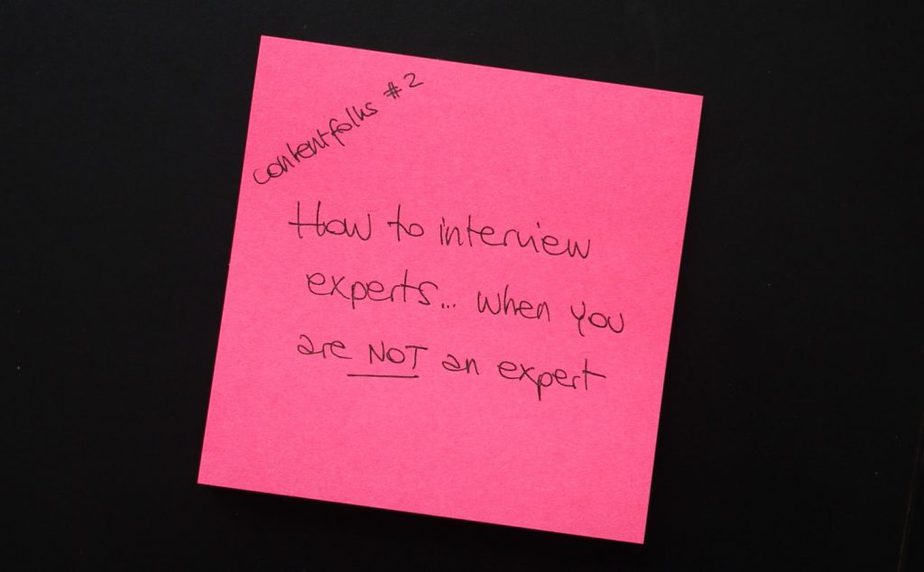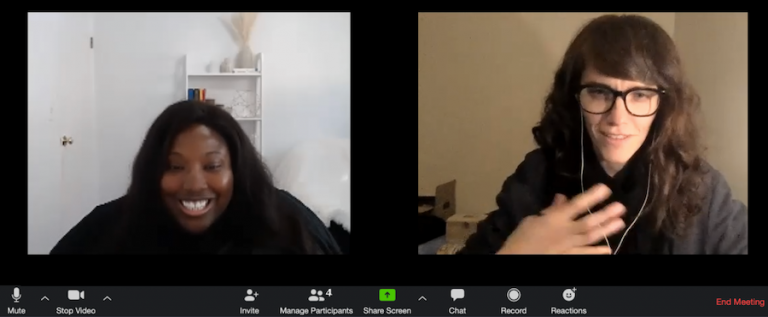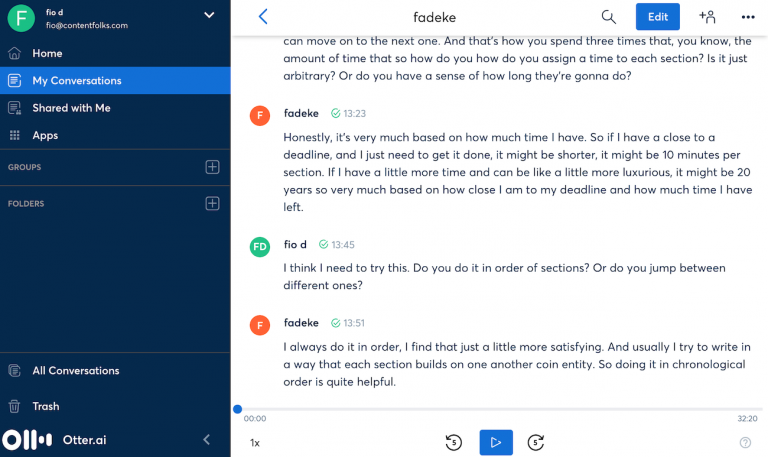
Welcome to contentfolks—a fortnightly newsletter with short lessons & ideas about content that makes a difference, sparks action, and truly serves its audience. Thank you for being here!
Hey there 👋
I previously shared my go-to workaround for creating authoritative content: finding and interviewing a Subject Matter Expert (SME) whose expertise you can leverage.
…which is very easy after you’ve done it several times—but if it’s your first time, you can probably do with some help. So let me make it easier by breaking down the process + giving you some examples of what you should (and should not) ask.
The logistics: prep and run your expert interview
First, the step-by-step:
- Create a top-level outline of your content piece, including all the information you must get from the person you’re interviewing
- Identify potential interviewees: you want someone who A) knows what they’re doing and B) is likely to say ‘yes’ to your request
- Reach out and let them know what you have in mind
- A little flattery will go a long way, so be upfront about why you chose THEM and not someone else
- Clarify your expectations about their involvement (e.g. a 30-minute call) so they know exactly what they’re agreeing to
- Set a date, jump on a call, and run the interview
- IMPORTANT! Ask for permission to record the conversation, so you can later get it transcribed and use the transcript as your main source
Questions that help you dig deeper
If you get 30 mins with an expert, you’d better make each one count. Don’t waste their time (and yours) by just covering top-level questions like “what is X?” and “how does Y work?”—you could probably google that anyway.
What you’re aiming for are questions that help you dig deeper. For example:
- Why is [topic] important?
- How would you define [topic] for a beginner?
- What’s something that non-experts believe about [topic] that they’re wrong about?
- What’s the most common reason people fail to succeed with [topic]?
- How do you overcome the most common [topic] roadblocks or pain points?
- Take me through the steps you take to do [example]. How do you know where to start? How do you know when you’re done?
- What is the one action you’d recommend somebody new to [topic] takes?
- What does success look like in [topic] after 6 months, 1 year, 5 years?
- What did you wish you knew about [topic] before you started?
💡 A practical example 💡
Fadeke Adegbuyi is the perfect SME to interview when you want an insight into long-form writing. She published tens of thousands of words at Doist.com including a comprehensive guide to deep work and a masterful one on, well, mastery.
A few weeks back, I asked Fadeke to talk to me for ~30mins about long-form content:

I used her guide to deep work as a jumping off point, and asked questions like:
- What’s the largest strategy behind it, and what were you trying to achieve?
- How did you determine our audience? How do you make content decisions based on their expertise about the topic?
- What did you do to get buy-in from your team when you had the idea for such a long piece?
- And to play devil’s advocate—if you didn’t get buy-in, what would you do next?
- What did the research phase look like?
- How did you structure your research into an outline?
- How has your experience with this piece informed the way you approach content?
- What takeaways can other writers get from it?
All of the above got transcribed via otter.ai, and now I have over 5000 words that I can take, reshuffle, edit, and re-arrange when needed. It looks like this:

With this method, you can create pretty much anything you need content-wise.
Give it a try soon? ✌️

📧 PS: if you want to get to get this content as a fortnightly email,
click here and sign up on Substack 📧